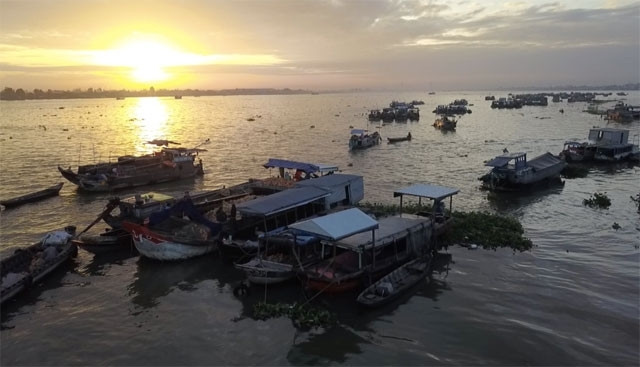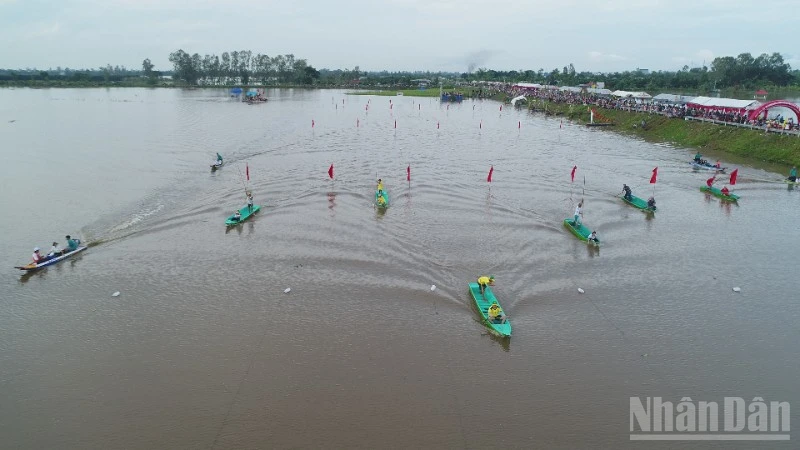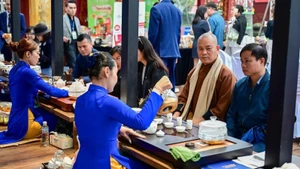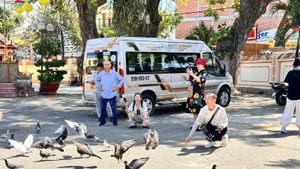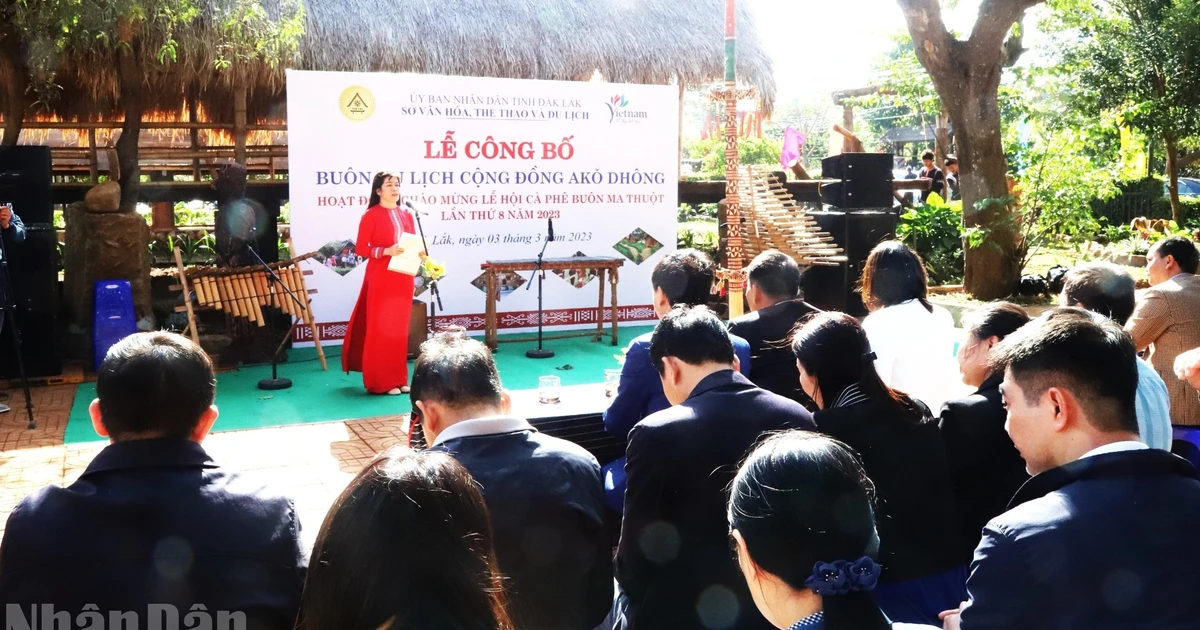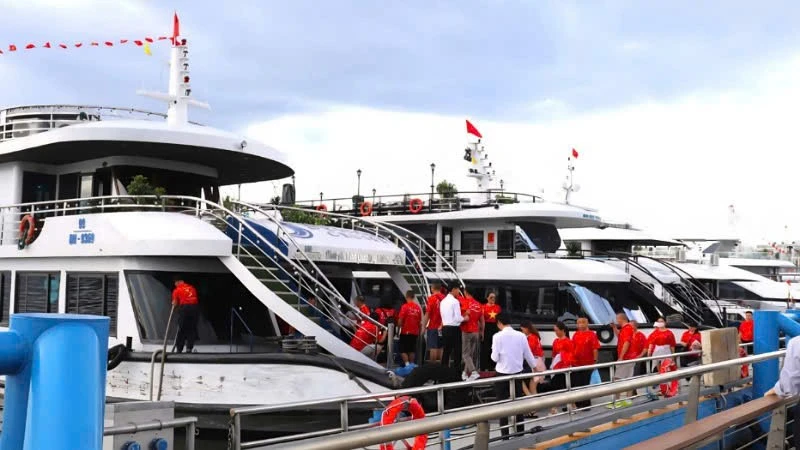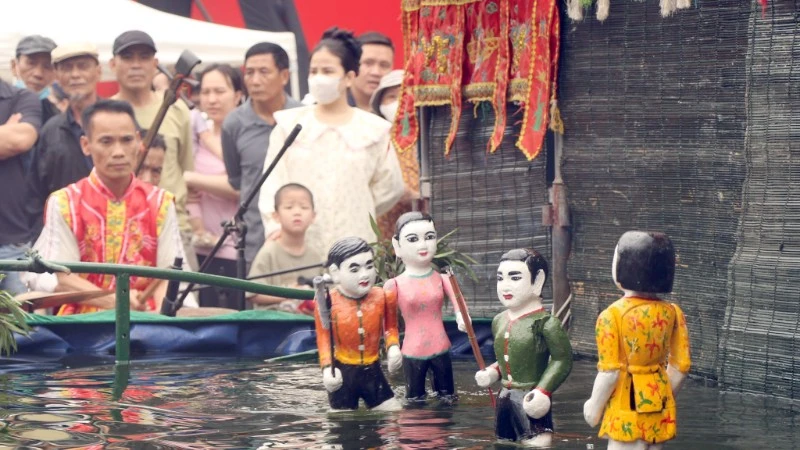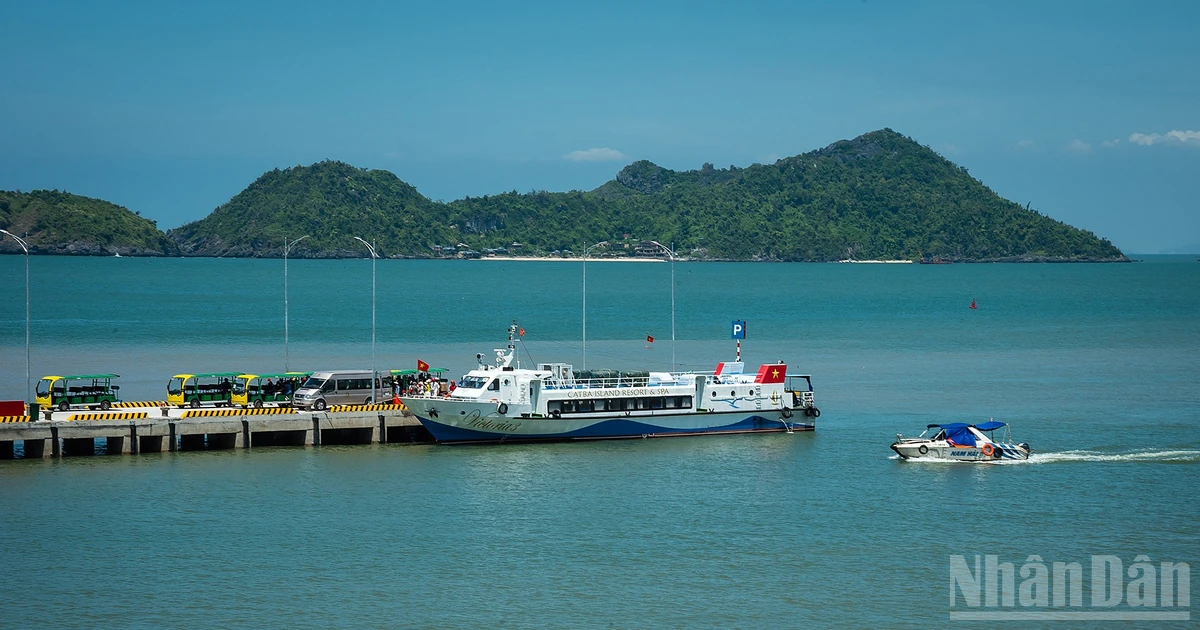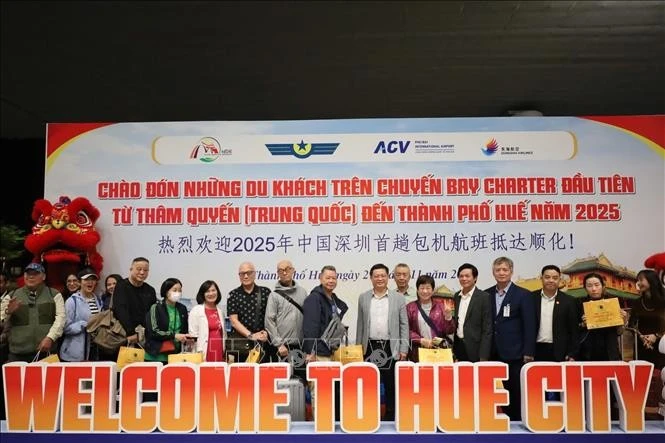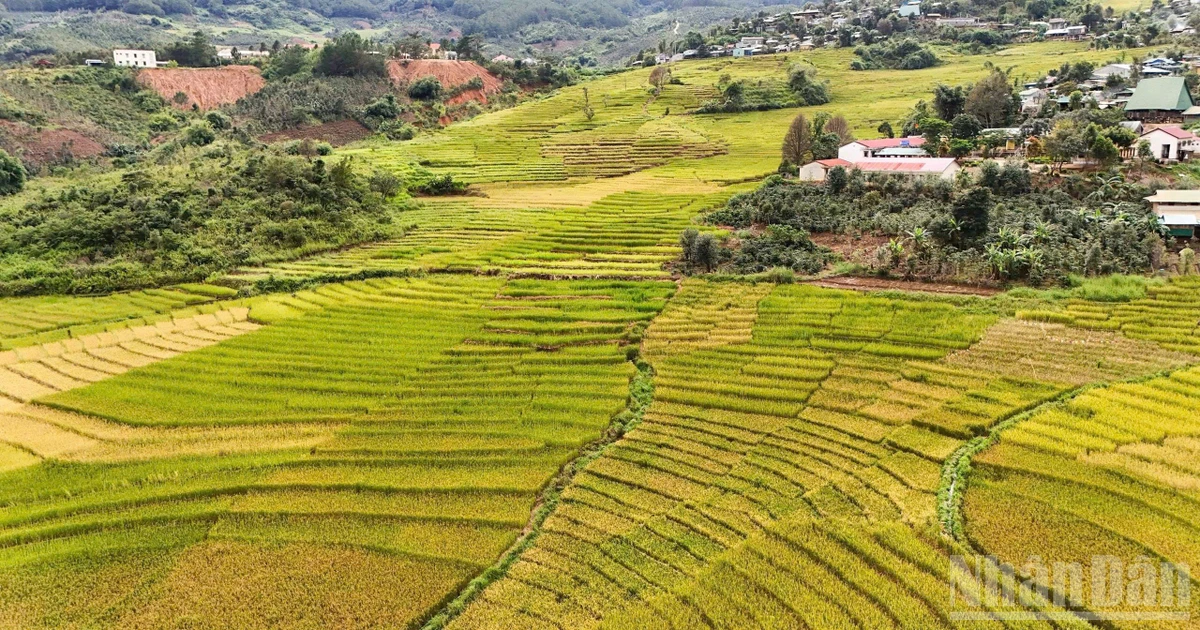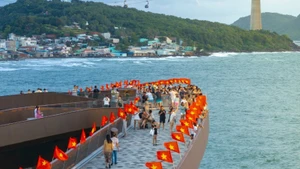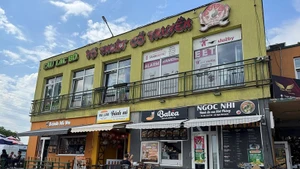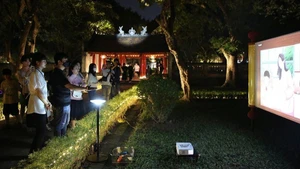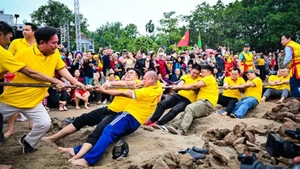Over the recent past years, riverway tourism has developed robustly in Vietnam’s Mekong Delta region and it has attracted much interest from domestic and international travellers alike. In An Giang province in particular, the type of tourism has been utilised with the launch of many tours and routes to interesting local destinations.
A typical river tour starts at Long Xuyen floating market, which is bustling with people and boats very early from the breaking dawn. Each of the boat is hung with ‘cay beo’ - a long pole which is attached with a bunch of fruits or flowers atop so that customers can see which goods are sold and are on sale on the boat from distance. The goods vary from things like watermelon, banana, fresh coconut, and pumpkin.
Kim Ngoc, a traveller from Cho Moi district, An Giang province said that it was her first time visiting Long Xuyen floating market. She was excited to see traders transport goods from large boats to smaller ones, which then row to markets.
“I will definitely tell my friends about this lively scenery and encourage them to explore this place in the near future”, Ngoc reiterated.
Another amazing experience for passengers travelling by boat is enjoy breakfast at “mobile restaurants” at the market. On offer on the boats include authentic local dishes such as ‘hu tiu’ (noodles with pig's bones), ‘banh canh’ (thick rice noodle), ‘bun rieu’ (crab noodle soup) and ‘bun ca’ (fish noodle soup). Coffee and other morning beverages are also available for tourists at affordable price.

People trade goods at Long Xuyen floating market
Leaving Long Xuyen floating market, passengers head to Uncle Ton’s memorial site in My Hoa Hung commune, Long Xuyen city to pay tribute to late President Ton Duc Thang (1888-1980) and learn more about the life and revolutionary career of the late President.
My Hoa Hung commune is also a favourite ecotourism destination for vacationers as they can visit Tao Hong garden, which grows many cherry and apple trees.
“After a long and hard-working week in Can Tho city, my friends and I decided to recharge our energy by coming by An Giang and My Hoa Hung commune,” said Thanh Truc, a tourist from Can Tho City.
“We had a well-spent day at the orchards here, which surprised us with luxuriant and abundant fruit trees,” she stated.
The last stop of the day tour is Cu Lao Gieng (Gieng islet), which covers three communes of Tan My, My Hiep and Binh Phuoc Xuan.
Locals on the islets have taken advantage of their orchards to develop ecotourism activities. Prominent among them is the Ut Hum’s ecological garden in Tan Phuoc hamlet, Tan My commune. The 6,000 s.q.m garden is home to various fruit trees, such as cherry, guava, jackfruit, mango and coconut.
Swings are hanging between coconut trees in the garden so that visitors can take a short break during their trip.
Visitors to the garden can learn about how to plant, take care of a mango tree as well as how to harvest mango in the proper way. They are also invited to taste sweet ripen mango and drink coconut juice.

Phuoc Thanh Pagoda in Gieng islet, which houses a 39m-tall statue of the Amitabha Buddha.
Aside from the beautiful orchards, Gieng islet is also home to century-old construction, including the islet’s church, which is said to be built in 1875, a monastery of the Franciscans, and Phuoc Thanh Pagoda, which houses a 39m-tall statue of the Amitabha Buddha.
Tom Johnson, a traveller from the UK, said he was excited to visit a mango garden and learn how to grow and cultivate the tree. The fruit is sweet and delicious, he said, adding that he is really enjoying the trip.
“I was surprised by the friendliness of Vietnamese people and the Gieng islanders in particular,” he stated, adding that he received such a warm welcome by locals everywhere he went on the island that he had to keep waving at the islanders.
With its effort to develop high-quality tourism products, An Giang province is expected to offer visitors with more wonderful travel experiences, making the locality one of the most interesting tourism spots of Mekong River Delta.
